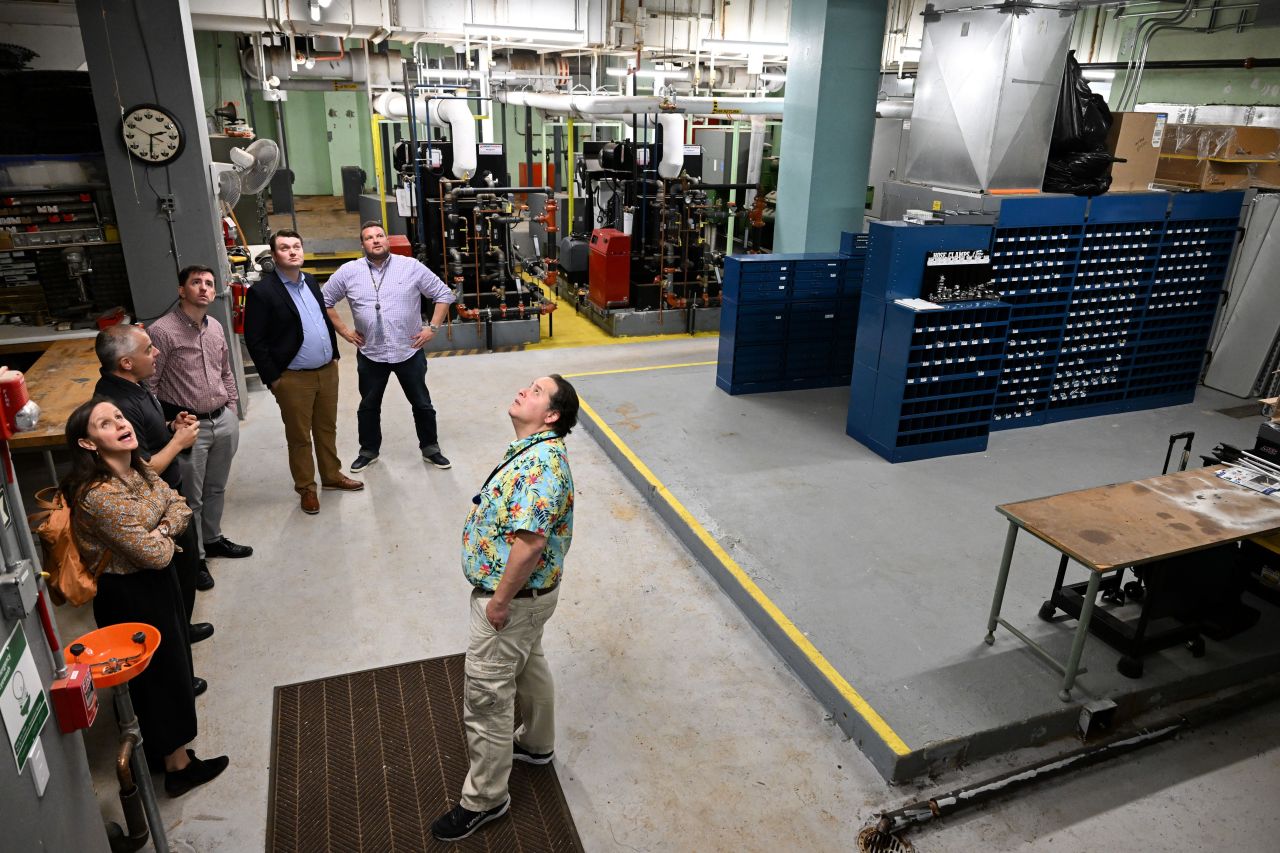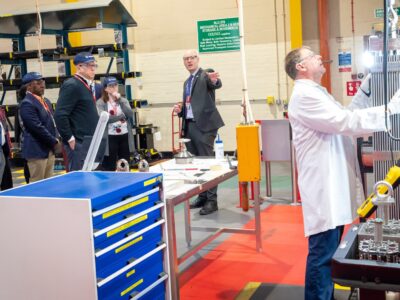Last August, the U.S. Department of Energy awarded Form Energy a $147 million grant for a multi-day energy storage system in Lincoln, Maine. It was part of a $2.2 billion award across multiple projects, including a $389 million grant to several New England states for their proposed Power Up New England project. Banding together with the hopes of bolstering their regional electric grid, Connecticut, Maine, Massachusetts, New Hampshire, Rhode Island, and Vermont submitted applications last April for funding to support new battery storage and wind energy generation projects that would deliver electricity across upgraded and new transmission interconnection points.
Funded by the Bipartisan Infrastructure Law’s Grid Innovation Program, the $5 billion program, which is part of a larger $10.5 billion Grid Resilience and Innovation Partnerships (GRIP) Program, seeks to improve grid resilience and reliability by supporting transmission, storage, and distribution infrastructure projects.
The states expect the award for the Power Up New England project to invest over $18 million in local communities, create almost 500 jobs, and provide over $9 million in scholarships and internships through workforce development initiatives across the states.

Photo Courtesy ISO New England
Form Energy will use its portion of the funding for an 85 MW energy storage project, which will be located at Maine’s Lincoln Technology Park and have enough capacity to provide electricity to about 57,000 residences. Its iron-air technology would enable the system to discharge energy for approximately 100 continuous hours. Further, it would support the local transmission system by reliably delivering more electricity, particularly from onshore wind turbines, and also serve as the biggest long-term energy storage facility in the world.
U.S. Senator Susan Collins (R-ME) reacted, “A crucial aspect of the bipartisan infrastructure law I helped negotiate was the Grid Resilience and Innovation Partnerships Program, which seeks to modernize our electric grid infrastructure, to allow for the deployment of energy storage and other innovative energy solutions. This investment will help revitalize the Town of Lincoln, formerly a mill town, while allowing New England to strengthen its electric grid to allow for the incorporation of new clean energy sources in the future.” It will also help Maine achieve its goals of 400 MW of installed energy storage capacity by 2040, as established by bipartisan statute in 2021.
U.S. Senator Angus King (I-ME) added, “But this is not just an enormous step forward for renewables and strengthening our energy infrastructure, it’s also a story of renewal for the Lincoln area. This storage system, which will be built on the former site of the Lincoln Pulp and Tissue Mill, will provide well-paying jobs and workforce development for the hardworking men and women of Lincoln and its neighboring communities.” The Lincoln Pulp and Tissue Mill traces its origins to 1882. It eventually became the most significant domestic producer of deep-dyed tissue for napkins and tablecloths before closing in 2015. It was the third-biggest local employer, providing jobs to 400 people in 2013, and the second-biggest local taxpayer.

Photo Courtesy Form Energy
According to the Maine Labor Climate Council, Form Energy’s energy storage project was set to receive tax credits from the Inflation Reduction Act. In the face of a potential federal rollback of those incentives, Sen. Collins stepped up to advocate for Form Energy’s plans for Maine and New England. She released a statement saying she spoke with Chris Wright, secretary for the Department of Energy, about the project and “pointed out that it aligns with the administration’s energy policies, would help improve the reliability of the New England electric grid, and would be beneficial in using a shuttered paper mill in a rural area of the state.”
At Maine’s state house in Augusta, clean energy employees and union workers gathered for a press conference co-hosted by the Maine AFL-CIO union to advocate for preserving the Investment Tax Credit (ITC) and Production Tax Credit (PTC), displaying how labor unions in the state are again stepping up in support of the tax credits. Meanwhile, Jason Shedlock, president of the Maine State Building and Construction Trades Council, who has a project labor agreement with Form Energy for the project, spoke with Sen. Collins in Washington, D.C. about the incentives’ importance and the harm being caused by the lack of certainty about their fate: “The economic development impact is something that’s been a top priority for everyone, and the lurching of, ‘will they or won’t they,’ does nothing for working Mainers,” he said, according to Bangor Daily News.
At the time of the federal award, Mateo Jaramillo, CEO & co-founder of Form Energy, committed to working with the state, the Penobscot Nation, and community leaders to address local needs and support regional job growth. More recently, he stated that he appreciated the unions and officials “working hard to bring new jobs, economic development and grid modernization to the state and the region,” and, “We look forward to working with the administration to move this important project forward and realize its full potential.”





